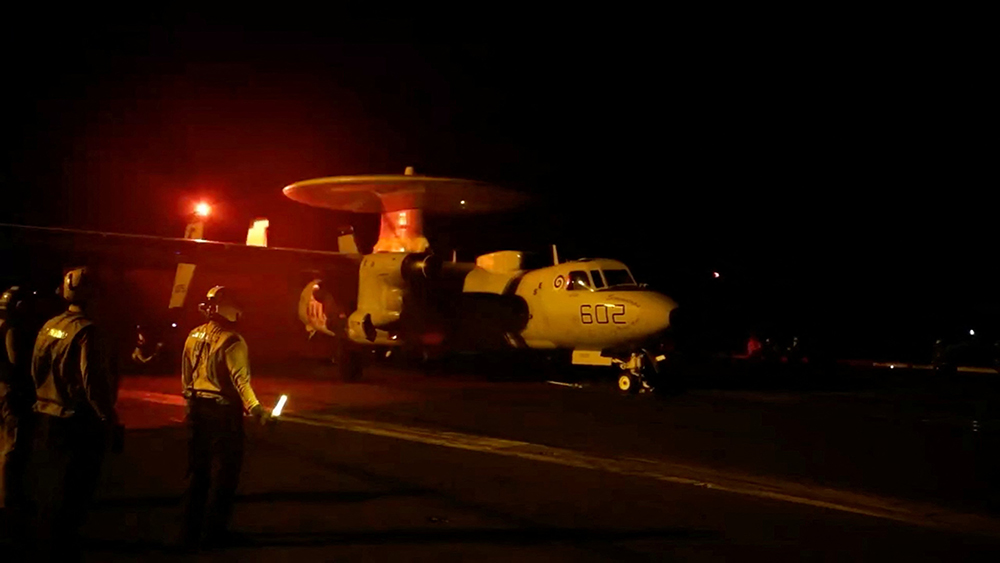
By Gina Christian
(OSV News) — Staff from Caritas Poland will remain in Yemen following U.S. and U.K.-led strikes on Houthi rebels, mission head Radoslaw Sterna told OSV News.
“We practically have two countries in Yemen,” said Sterna. “These airstrikes have affected a different government from where I am; therefore, we are quite safe here as for now.”
On Jan. 11, the U.S. and the U.K. launched air and sea military strikes on 16 Houthi positions in the Arabian peninsula nation, which has been racked by civil war since 2014, resulting in what the United Nations has called the “largest humanitarian crisis in the world.”
In a statement that day, President Joe Biden said he had ordered the strikes — conducted by a coalition of forces and support from the U.K., Australia, Bahrain, Canada and the Netherlands — “in direct response to unprecedented Houthi attacks against international maritime vessels in the Red Sea.”
The waterway, connected to the Mediterranean Sea by the Suez Canal, is a vital artery for international shipping, transited by some 10% of global trade and 40% of Asia-Europe trade.
Houthi forces — comprised of Shiite Muslim rebels linked to Iran — overtook Yemen’s capital, Sanaa, in 2014 and drove out President Abd Rabbu Mansour Hadi in 2015. Shortly afterward, Saudi Arabia led a Gulf states coalition against the Houthis, named for Yemeni political activist Hussein Badr al-Din al-Houthi, who was killed in 2004.
Amid the nation’s largely frozen civil conflict, Houthis claim they are targeting commercial vessels linked to Israel as a sign of solidarity with Hamas.
Sterna, based in the south of Yemen, told OSV News the strikes were taking place in the country’s north.
“The two groups here in the south are American allies,” he said. “There has been a coalition building for a long time, so these airstrikes will not threaten the activities of Caritas Poland in Yemen.”
For the millions of Yemenis in need of humanitarian aid, Caritas Poland’s commitment to remain brings hope.
According to the U.N. Population Fund, 80% of Yemen’s population, or 21.6 million, require some form of humanitarian assistance, with UNICEF reporting that more than 11 million of those are children.
At least 2 million children are acutely malnourished, including nearly more than a half-million children facing severe acute malnutrition, a life-threatening condition. More than 11 million children are in need of one or more forms of humanitarian assistance.
In addition, around 1.3 million pregnant or nursing mothers are acutely malnourished.
According to Caritas Poland, out of 32 million people in Yemen, 19 million are food insecure, and 6 million face hunger.
In 2022, Caritas Poland was able to provide medical help to 45,000 people, hoping the number would reach 60,000 in 2023. “It is a drop in the ocean of needs, but still, it is lifesaving,” Sterna said.
Yet that support is still not without risk, as Catholic clergy and aid workers in Yemen have come under attack in recent years.
In March 2016, a Salesian priest, Father Tom Uzhunnalil, was abducted by Islamic State militants from a Missionaries of Charity home for the elderly and those with disabilities. Four of the missionaries and 12 others were slain in the attack; Father Uzhunnalil was released in 2017 after authorities from Oman brokered a deal.
Sterna told OSV News that in December “the roadmap for the peace process began to be brokered.”
“The condition was the payment of benefits from oil sales to the north as well. Most of the oil is in the south, and the majority of the population lives in the north, so one of the terms of the agreement was to be the payment of benefits,” he said.
However, “a few days later there was an act of sabotage, as if someone wanted to prevent the assumptions of the roadmap. And this is not the first roadmap,” Sterna said of political instability in the country.
“So far it is stable here in the south,” he said. ” Whether it will change — I do not know.”
